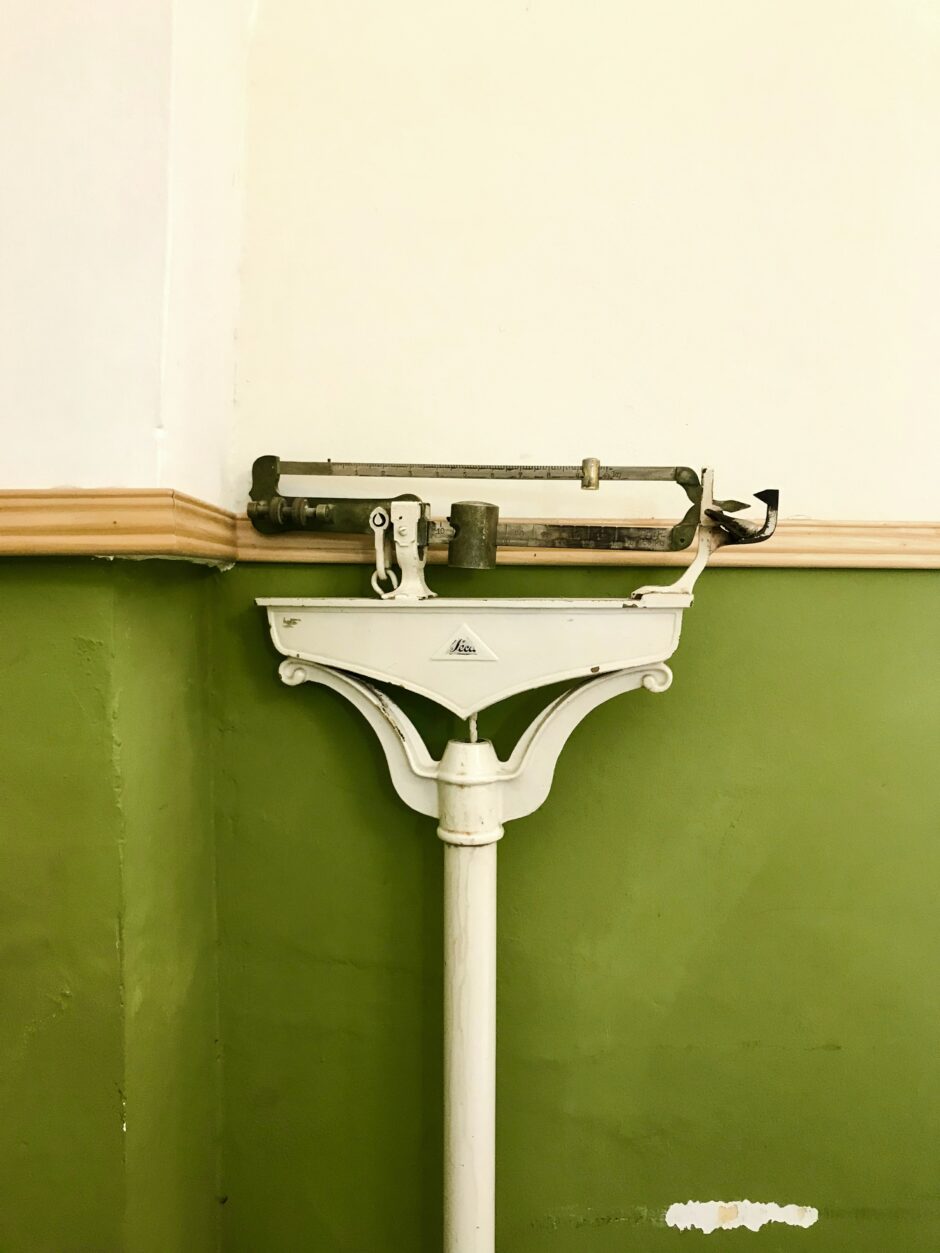by Elizabeth O’Nuanain
Fatness: Everyone will look at me. Everyone will judge me. Everyone will imagine I spend my days shoveling doughnuts and pizzas in my mouth, one after another, and another…
Fat sucks ass. Can I get an amen, people?
Fat programmed me to avert my eyes from full-length mirrors and large window-panes. Fat, I imagined (though not without evidence) made people look at me and think ‘lazy’; ‘unclean’, ‘dim-witted’, ‘gluttonous’, ‘weak-willed’ and as a cultural subject within patriarchy, ‘utterly un-fuckable’. Fat is still, after over forty years, a feminist issue.
Internalisation: Body-size and shape equate not only to body-worth, but overall human-worth. From jobs, to education, to romance, fat girls and women will struggle far more than their thin counterparts. Unless I shaped up and embraced the aspartame, my body weight doomed me to a life of ignorance, poverty and loneliness. I learned this lesson at my mother’s knee before I could write my name. My mother, now eighty-one, arthritic and losing her eyesight, spoke with me on the phone last week. She informed me she weighs one-hundred and ten pounds and wears a size three jeans. What struck me was not that she shared that specific information so quickly, but that this is the routine of all our talks. She is an excellent woman who watches her weight with steadfast commitment. I grew up immersed in this oversimplified notion of what fat means, how fat happens, and the place(s) that fat occupies in my culture.
I now weigh in somewhere between my very thinnest and my (more moderate) heaviest. I am fifty-eight years old and have spent close to fifty of those years worrying over, or downright hating, my body. This afternoon as I write this post, I feel only tenderness and appreciation for this body of mine. It may go against the grain with all the lessons I internalised and all the practices (diets, obsessive weighing) I took part in, but here I am, living my quiet revolution in a world so full of callous regulations imposed within and without upon the bodies of women. In this new mindset, I have spent hours thinking, journaling and deconstructing my relationship with weight — particularly what has informed my thinking about weight and body shape over the past ten years as I notice the changes to my body corresponding to bereavement, emotional pain and the natural disaster of menopause.
Grief. How I lost my husband and swallowed my sister: When I met my husband, he stood over six foot, four inches tall. He was a good forty to fifty pounds overweight. When we buried him, his suit — the one he bought only a year before and that had so beautifully fit him, now completely engulfed him. The funeral director had to gather and pin the material at the back. In the months before he died, his thinness, the act of touching his body, running my hand across his shoulders and back, staggered me. So much of him had gone. I often retreated to another part of the house to weep alone. After he died, I became a walking, talking testament to emptiness. In the first two years I scarcely ate, every part of my body ached. I grew enviably thin. Insanely, I saw my aching, starving, empty body as perfect, and, importantly, lovable.
In the following years, I became little more than a body for draping clothes and garnering male attention. My capacity for joy, creativity, and human engagement scarcely functioned. My truncated grief found a place in my malnourished belly, where it hardened like a stone and rattled inside me. All the while I exchanged my slender body for (abusive) affirmation, seeking to fill that void in my belly. Then, out of the blue, my sister, Leslie, suddenly died from complications of the flu. After losing her, I put on weight and everything (it seemed) changed. In the magical thinking of bereavement, I imagined that my body had taken on the weight of her loss. I fixated on Leslie’s own emotional struggle with weight; her self-reproach, her isolation and her intense desire to be ‘thin enough’. Then I made that struggle my own.
Only, I did not really swallow my sister. My body did not mysteriously incorporate her weight. I did not become her, anymore than I became my emaciated husband six years earlier. Rather, I grieved, and I gained weight; these circumstances were not unrelated, nor were they the full picture. My body and I did not embark upon the grieving process with a clean slate — prior to her death my body was already experiencing depression, menopause, chronic back pain and recurring insomnia — all of which impact the body’s metabolism and contribute not only to weight gain, but even where the weight appears. Instead, I just reminded myself of my sister through my frustration and my self-deprecating inner dialogue. I merely succumbed, and reasonably so, to the cultural myths that shaped my conception of a worthy woman — a myth I complied with, even while common sense told me otherwise — throughout my life.
How grief also taught me self-acceptance. While grief played an active role in harming my body and enhanced the divide between my emotional and physical self, I discovered over time that allowing my sorrow to flow helped me to mend that divide. I cannot imagine anyone wants to feel loss; the relentless weight of an absence hanging across your shoulders like sandbags; the jaw perpetually clenched to hold the sobs at bay, the utter exhaustion mocked nightly by insomnia — it was horrible; it was also necessary. Allowing myself the space to experience my loss, I learned how what I think and what I feel are not activities separate from my body, but are instead of my body; interrelated and acting in concert at all times. Learning how intrinsic my body is to all else that I am, compels me to challenge my lifelong habit of seeing my body as an unruly, uncooperative force that threatened my happiness and self-image by its refusal to transform into some imaginary standard.
I have not made complete peace with my body; but I have ended our protracted war — it is more about treatment than cure. I still get frustrated if my jeans grow tighter, or my crow’s feet deepen. I have not defeated the effects of menopause on my mood, memory, and sleep cycle. Aging and corporality are inescapable facts for sentient beings like me. Sometimes the facts suck, but I prefer them to the alternative.
Elizabeth O’Nuanain is a (re)emerging blogger, poet and chicken keeper, living out her post-menopausal days in the wilds of West Cork, Ireland. She writes about grief, trauma, depression and recovery, and experiments with poetry. The Grief In My Belly was previously published in Elizabeth’s blog Shriekinglizzy.com and on Crow’s Feet.
~~~~~~~~~~~~~~~~~~~~~~~~~~~
Margaret Attwood swooned over The Child Finder and The Butterfly Girl, but Enchanted is the novel that we keep going back to. The world of Enchanted is magical, mysterious, and perilous. The place itself is an old stone prison and the story is raw and beautiful. We are big fans of Rene Denfeld. Her advocacy and her creativity are inspiring. Check out our Rene Denfeld Archive.
Order the book from Amazon or Bookshop.org
~~~~~~~~~~~~~~~~~~~~~~~~~~~
Anti-racist resources, because silence is not an option
~~~~~~~~~~~~~~~~~~~~~~~~~~~



